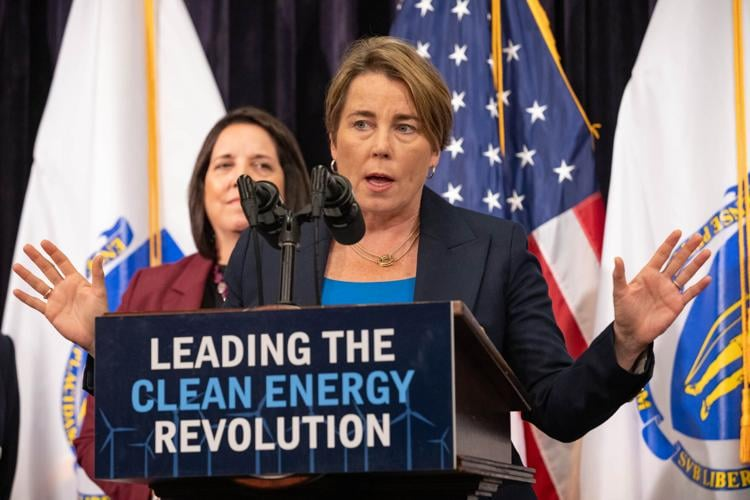Green Revolution: How College Labs Are Transforming Chemical Education
Environment
2025-04-03 12:00:00Content

In recent years, undergraduate chemistry laboratories have been undergoing a transformative shift towards sustainability and green chemistry. Leading this progressive movement, UC Berkeley's chemistry department has been at the forefront, strategically integrating environmentally conscious practices into laboratory curricula over the past ten years.
By reimagining traditional experimental approaches, these labs are now emphasizing reduced chemical waste, safer reagents, and more eco-friendly methodologies. Students are not just learning chemical principles, but also developing a critical understanding of how scientific practices can minimize environmental impact.
The department's commitment to green chemistry represents more than just a trend—it's a fundamental reimagining of scientific education, preparing the next generation of chemists to be responsible stewards of both scientific innovation and environmental preservation.
Green Chemistry Revolution: UC Berkeley's Innovative Approach to Sustainable Laboratory Education
In the rapidly evolving landscape of scientific education, universities are increasingly recognizing the critical importance of environmental consciousness. UC Berkeley stands at the forefront of this transformative movement, pioneering a groundbreaking approach to integrating sustainability principles directly into undergraduate scientific training.Transforming Scientific Education Through Environmental Stewardship
The Paradigm Shift in Laboratory Curriculum
Modern scientific education is undergoing a profound metamorphosis, with environmental sustainability emerging as a cornerstone of contemporary research methodologies. At UC Berkeley, the chemistry department has been strategically reimagining laboratory experiences to align with global environmental challenges. This innovative approach goes beyond traditional scientific training, embedding ecological awareness into the fundamental fabric of scientific exploration. The transformation represents more than a mere curricular adjustment; it's a holistic reimagining of scientific education. Undergraduate students are no longer passive learners but active participants in a broader environmental dialogue. By integrating green chemistry principles, the department is cultivating a new generation of scientists who understand that scientific innovation and environmental responsibility are inextricably linked.Pioneering Sustainable Laboratory Practices
UC Berkeley's chemistry department has meticulously developed a comprehensive strategy to embed sustainability into every aspect of laboratory instruction. This approach involves multiple dimensions of environmental consciousness, from reducing chemical waste to implementing energy-efficient experimental protocols. Cutting-edge techniques are being developed that minimize environmental impact while maintaining rigorous scientific standards. Professors and research scientists collaborate to design experiments that demonstrate how scientific inquiry can coexist harmoniously with ecological preservation. Students learn to critically evaluate experimental methodologies through an environmental lens, understanding that scientific progress need not come at the expense of planetary health.Curriculum Design and Environmental Innovation
The department's curriculum represents a sophisticated blend of scientific rigor and environmental mindfulness. Laboratory modules are carefully crafted to introduce students to green chemistry principles, teaching them to consider environmental consequences alongside scientific outcomes. Innovative teaching strategies include hands-on experiences with sustainable chemical processes, analysis of environmental impact assessments, and exploration of alternative methodologies that reduce ecological footprints. Students engage with real-world challenges, developing problem-solving skills that extend beyond traditional scientific training.Broader Implications for Scientific Education
UC Berkeley's approach serves as a potential blueprint for scientific education nationwide. By demonstrating that environmental consciousness can be seamlessly integrated into scientific training, the department challenges long-standing paradigms of research and education. The implications extend far beyond the university campus. Graduates equipped with these comprehensive skills are poised to become leaders in sustainable scientific innovation, potentially transforming industries, research institutions, and environmental policy frameworks.Technology and Sustainability: A Symbiotic Relationship
Advanced technological tools play a crucial role in this educational transformation. Sophisticated computational models, advanced measurement techniques, and innovative laboratory equipment enable more precise and environmentally conscious experimental designs. Students learn to leverage technology not just as a scientific tool, but as a mechanism for environmental stewardship. This approach represents a holistic understanding of technology's potential to address complex ecological challenges.Future Perspectives and Global Impact
The ongoing evolution of UC Berkeley's chemistry department reflects a broader global trend towards more sustainable and responsible scientific practices. As environmental challenges become increasingly complex, educational institutions must adapt, preparing students to be innovative problem-solvers. This commitment to sustainability extends beyond immediate educational goals, representing a fundamental reimagining of scientific training's role in addressing global environmental challenges. By cultivating a generation of environmentally conscious scientists, UC Berkeley is contributing to a more sustainable and thoughtful approach to scientific innovation.RELATED NEWS
Environment

Green Tech Revolution: How Smart Environment Solutions Are Reshaping Our Future Landscape
2025-02-24 04:48:07
Environment

Unleashing Cybersecurity's Dark Horse: Inside Exegol, the Hacker's Swiss Army Knife
2025-03-31 05:00:03
Environment

Reality TV Star Gary King Faces Explosive Lawsuit: Sexual Misconduct Allegations Rock 'Below Deck' and NBCUniversal
2025-02-26 02:33:37





